BAP Sheep and Goat Unit
1/229
Earn XP
Description and Tags
BIIG boy
Name | Mastery | Learn | Test | Matching | Spaced |
|---|
No study sessions yet.
230 Terms
Farm Flock
Smaller flocks of ~30 ewes with ~3 breeds per flock, Midwest U.S., home farms
Range Flock
100’s-1000’s of ewes with multiple varieties of breeds. Western U.S. where there is a LOT of land
Highest production numbers for sheep are where?
Australia and New Zealand
Why do we import most of our meat?
Less expensive, we have a non-uniform product, we have less space for sheep, less quality product, and a disproportionate demand for it.
Most goats live where?
China/Asia
What is the fastest growing livestock industry in the U.S?
Meat Goats
Nutritional Benefits of goat meat?
High Protein, Iron, and Potassium
Low Fat, Calories, Cholesterol and Sodium
Understand Ethnic Consumption of goat meat
Religious holidays/beliefs/cultures
Specifically Hispanic, middle Eastern, Caribbean, Southeast Asia
3 reasons why goat meat is the fastest growing industry?
Goats are easy to domesticate, easier to keep around, and survive easily or forage
People who eat it are more likely to use their products (Close and readily available)
Religious holidays/cultures (Unable to consume other meats, demand raises during holidays
What type of milk is more consumed world wide?
Goats milk
Name all of the purposes of goat’s production wise.
Milk, Meat, Hair and Skins
Name all of the purposes of Sheep production wise.
Wool, Meat, Skins, Leather, Lanolin
Pros of goats over cows
Smaller Size, Easier to manage, multiple babies, Higher Regeneration and a higher likelihood for females
Flock
Group of Sheep
Ewe
Female Sheep
Ram
In-Tact Male Sheep
Wether
Castrated Male Sheep/Goat
Sire
Paternal Contributor to DNA
Dam
Maternal contributor to DNA
Partoriton
Act of giving birth
Parity
Number of times given birth
Lamb (animal)
Sheep less than 1 year old
Yearling
Sheep older than 1 year
Lambing
Act of a sheep giving birth
Lamb (food)
Meat from a sheep less than 1 year of age
Mutton
Meat from a sheep more than 1 year of age
Pastern
Wrist/Ankle of the foot - angle between dewclaw and hoof
Forearm
Main cut of meat on leg
Stifle
Hip structure (thigh) - where the leg meets the body
Flank
The “rear” of the sheep (meaty part)
Hock
Back leg’s elbow (same as on a horse)
Dock
Stub of the tail (if docked)
Herd
Group of goats
Doe
Female goat
Nanny
Slang term for a female goat; Typically, an older, milking goat.
Doeling
Female goat under 1 year old
Buck
Intact male goat
Billy
Slang term for intact male goat
Buckling
Young male goat under 1 year old
Kid
Baby goat
Kidding
Act of a goat giving birth
Wattle
Fleshy appendage that hangs from the throat or the ears (no purpose)
Wither
Highest point of the shoulder where spine and shoulder meet
Hooks
Top of hip bones (pointy bit on top of animal)
Pins
Back of hip bones (pointy part near/on the rear of the animal)
Forerib
Top of the rib (near the head)
Rear rib
Last ribs (near rear)
Barrel
Overall diameter of the body
Heart Girth
Measurement around the chest (how wide they are from side)
Fore udder Attachment
Where the fore udder attaches to the body
Fore Udder
Front of the udder (towards head)
Udder Floor
Bottom of the udder (Towards ground)
Rear Udder
Back of the udder (towards rear)
Teats
The nipple where milk comes out of the udder
Side Attachments
Where the udder attaches to under thigh area
Medial Suspensory Ligament
The ligament that splits the udder in 2, and holds udder up
Open Face
Wool stops behind the ears - no wool on face
Closed Face
Wool grows over the head and face
Bare Legged
No wool from hock down to the hoof
Polled
Animal naturally has no horns
Natural Color
Wool colored anything other than white (black, grey, brown, red, etc.)
Points
Nose, ears, hooves, face, the highlights of the face
Lanolin
Oil produced on the wool
Wool Cap
Wool on the top of the head
Pendulous Ears
Ears that hang down by the head
Channels
Line of wool from the eyes down to the bottom of the muzzle
Fullbred
100% a specific breed - both parents 100%
Purebred
At least 1 ancestor was NOT 100% (Can breed up to full bred)
Recorded Grade
Animal that cannot be registered (due to breed standards)
Breed up
Can eventually meet a breed standard if continuously bred with Fullbreds
Hypothalamus
Base of brain, produces GnRH
Anterior Patuitary
Below Hypothalamus, produces LH and FHS
“LH” hormone
Luteinizing Hormone
“FSH” hormone
Follicle stimulating hormone
GnrH
Gonadotropin Stimulating hormone
Testosterone
Male steroid hormone
Estrogen
Female steroid hormone
Progesterone
Pregnancy Hormone
Sheep Breed - Wool breed, Polled OR Horned, Wool-legged, high quality, fine wool, Large, rugged, mostly opened face, pink nose and white hooves - foundation of most western flocks
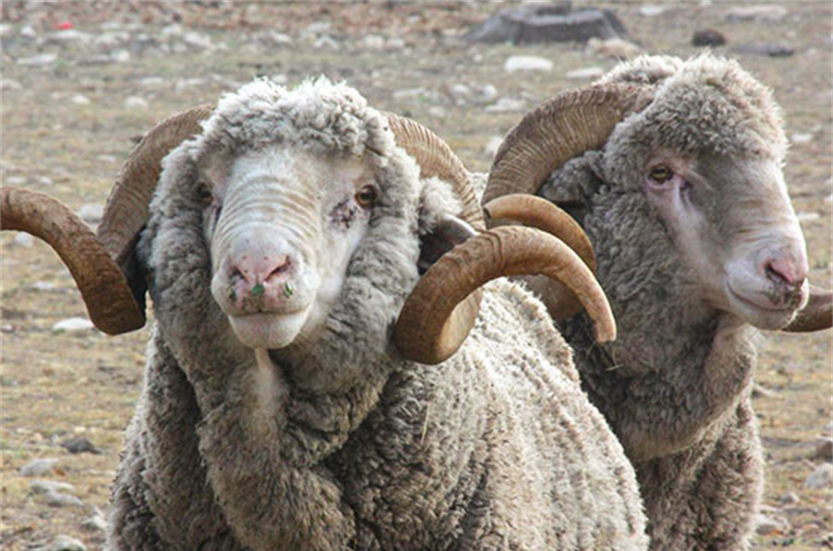
Ramboulliet
Sheep Breed - Wool breed, High quality, fine, soft wool, Horned, Significant wool cap, Pink Nose and medium skin folds - Popular in Australia
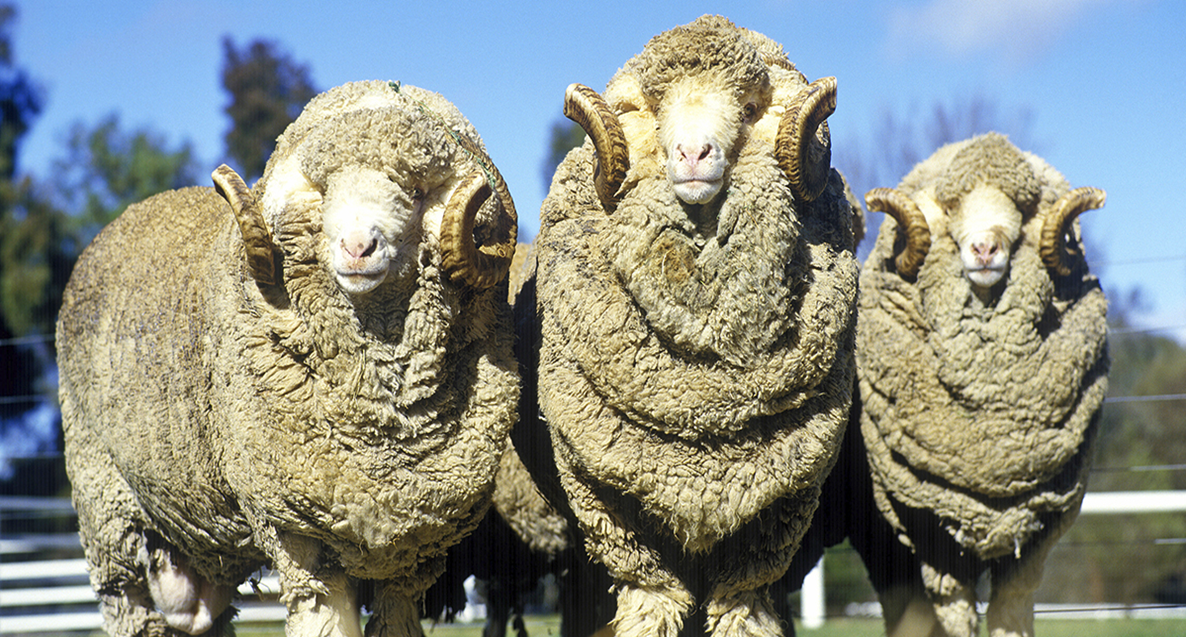
Merino
Sheep Breed - Dual Purpose, Large and Tall, mostly closed face, no channels, light nose and hooves, polled, and wool on legs - Developed in US
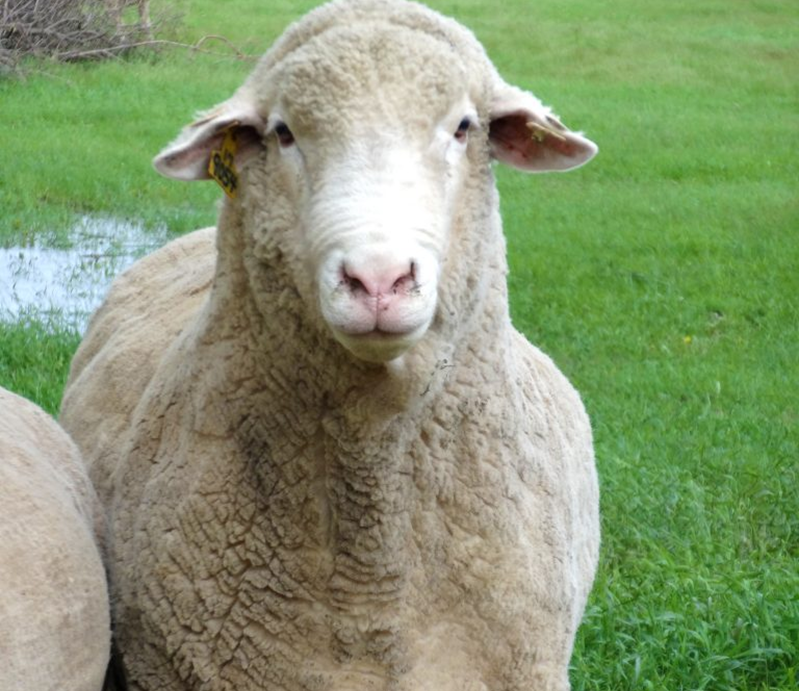
Columbia
Sheep Breed - Wool breed, wool is heaviest and longest, 12 inches of wool growth a year, largest breed by popularity, known by long wool
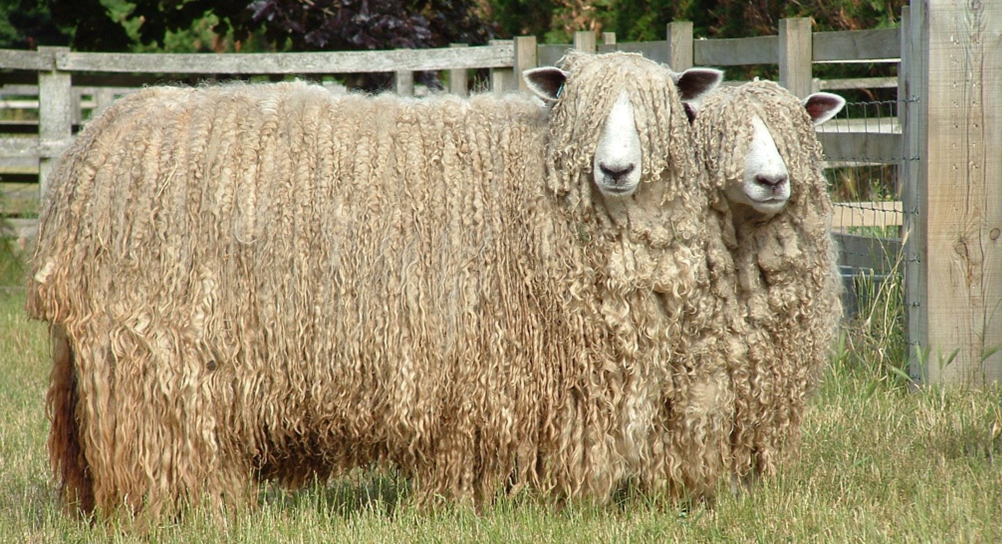
Lincoln
Sheep Breed - Wool breed, long, curly wool, open faced, clean legged, roman nose, erect ears, smaller and shorter
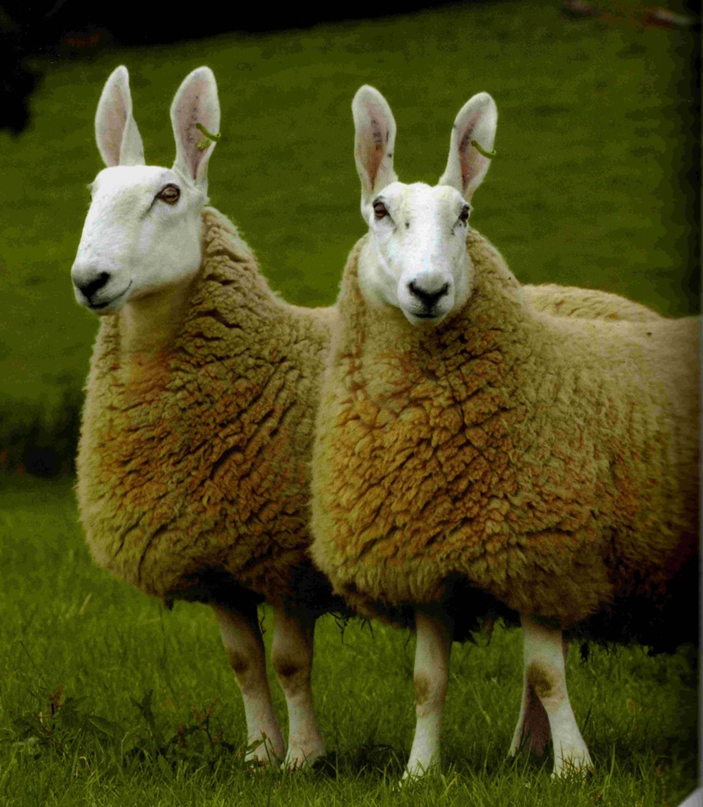
Border Leicester
Sheep Breed - Dual Purpose (wool>meat), Polled, dense fleece, heavy lanolin production, wool cap, no horns, black nose, black hooves
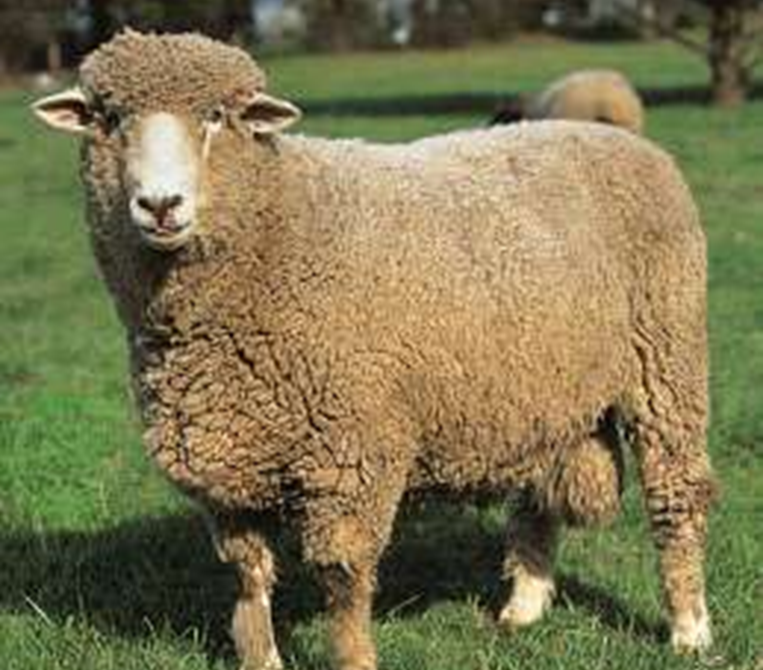
Corriedale
Sheep Breed - Dual Purpose, Coarse wool, big fluffy black faces, typically petting zoo animals, either polled or horned (naturally horned)
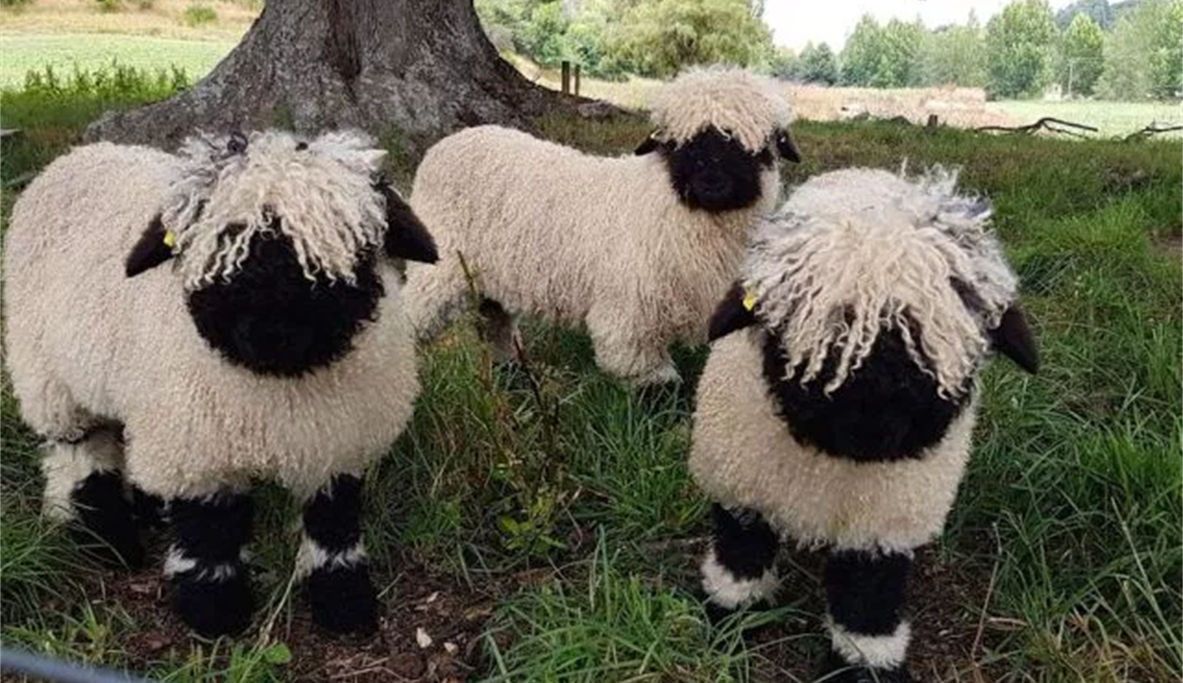
Black-Nosed Valais
Sheep Breed - Meat, Black face and legs, open face, Polled, Black points, Bare legs, Pendulous ears USED to be most popular
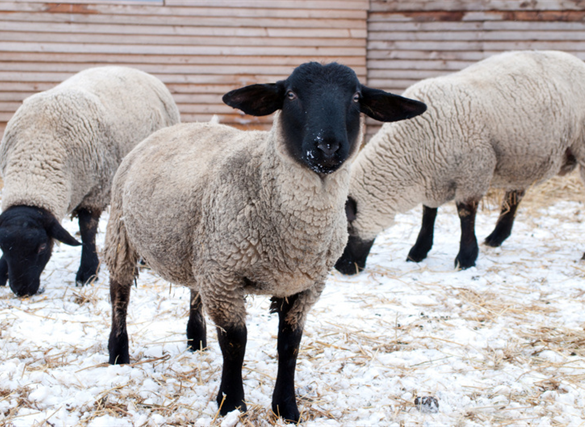
Suffolk
Sheep Breed - Meat, Black face and points, full wool cap, polled, wool on legs and channels
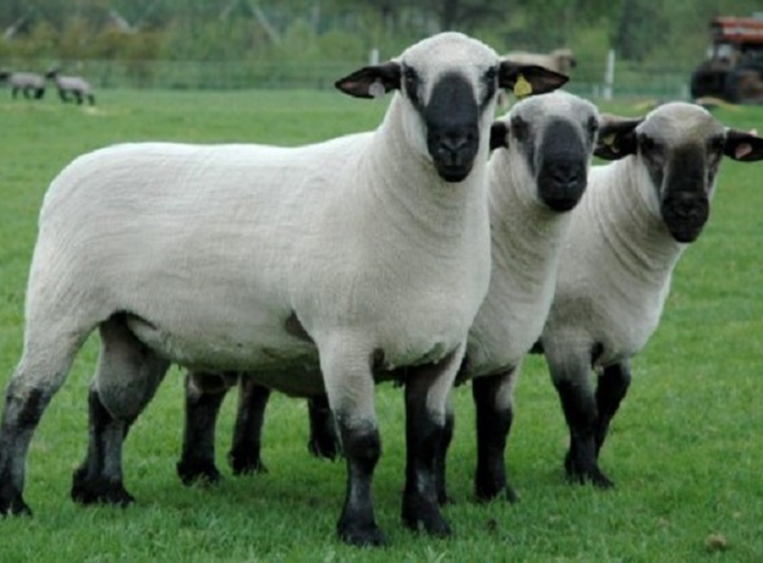
Hampshire
Sheep Breed - Meat, Closed face, Mousy brown face/legs, Small/Medium sized
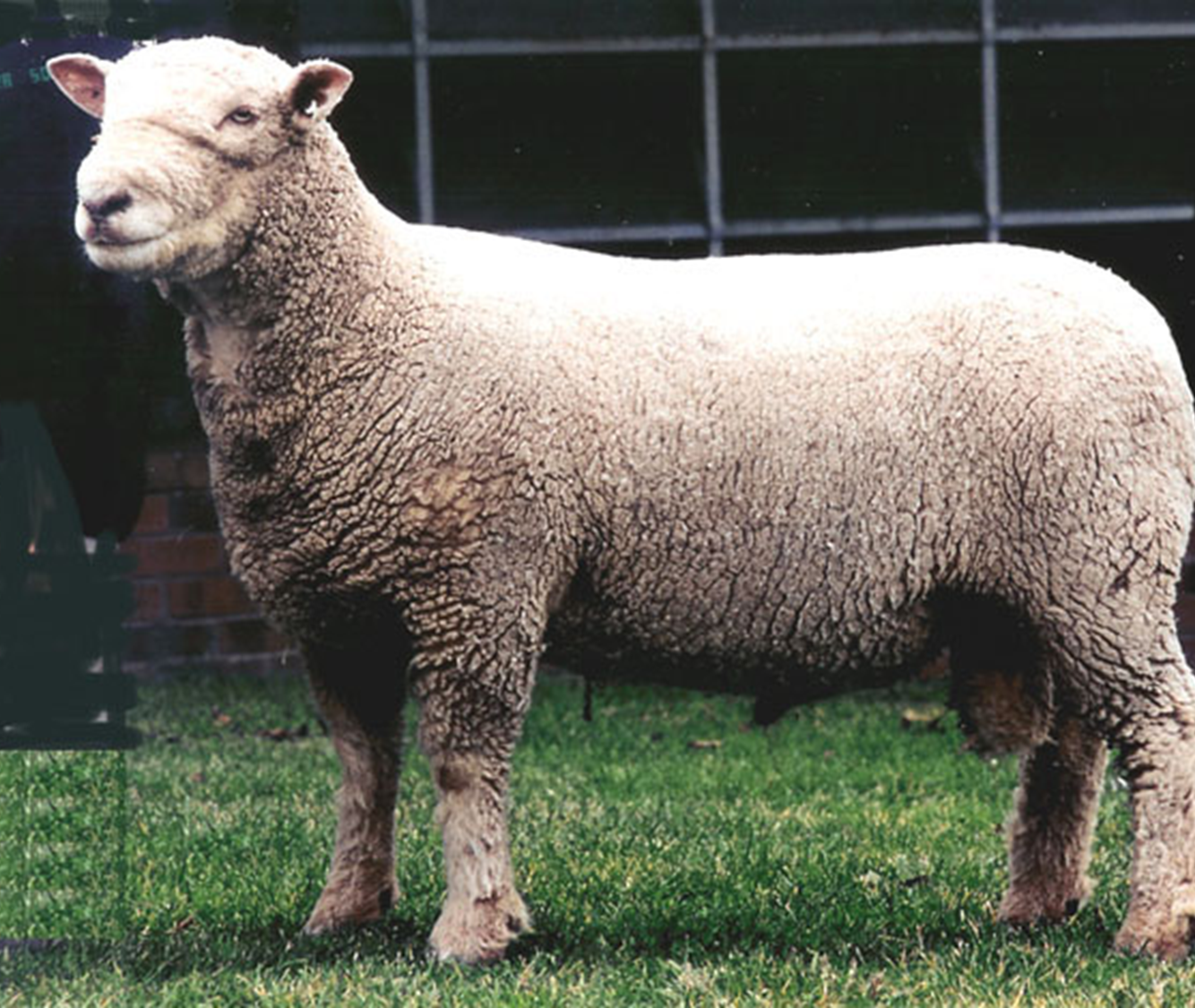
Southdown
Sheep Breed - Dual Purpose, Horned, Polled, Medium wool free of dark fibers, mostly closed face, No channels - Can breed out of season
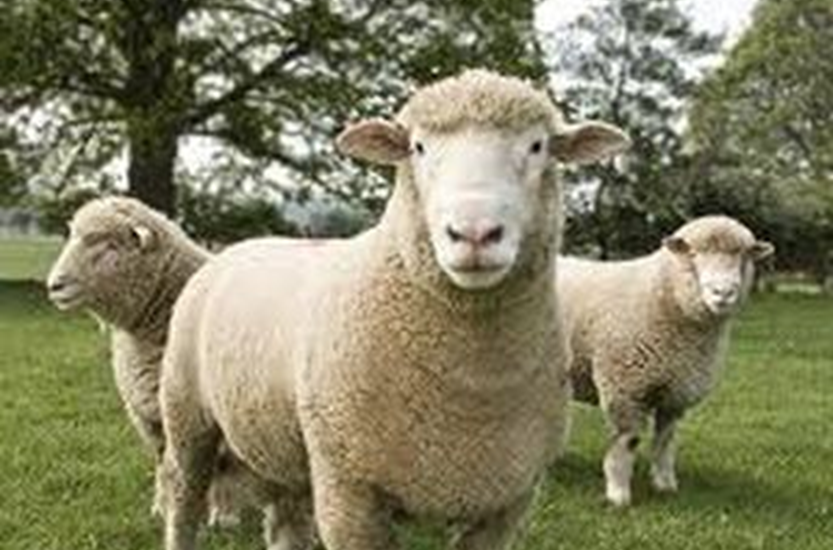
Dorset
Sheep breed - Meat, Open face, clean legs, smaller, pointier ears, less bulky, smaller overall
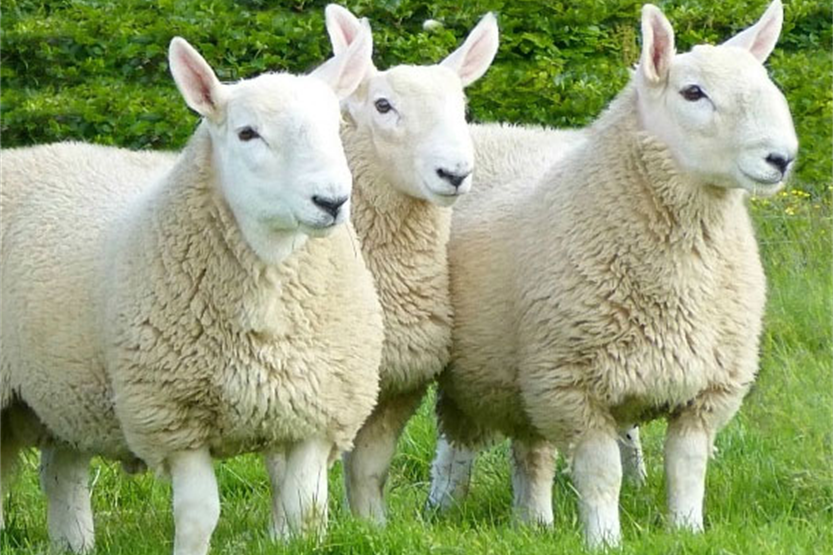
Cheviot
Sheep Breed - meat, closed face, brown face, deep channel, Medium/Large
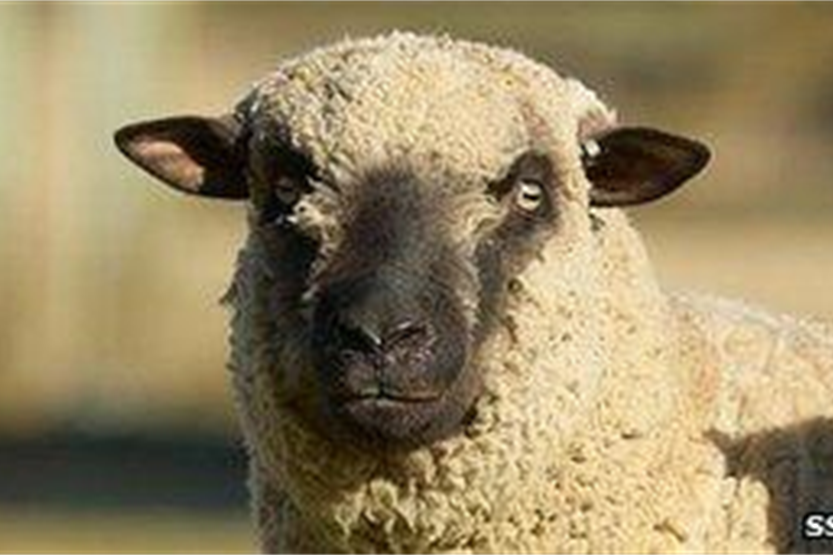
Shropshire
Sheep Breed - Meat, developed in Missouri from cheviot ram x Columbia ewe, large frame, white face, black nose
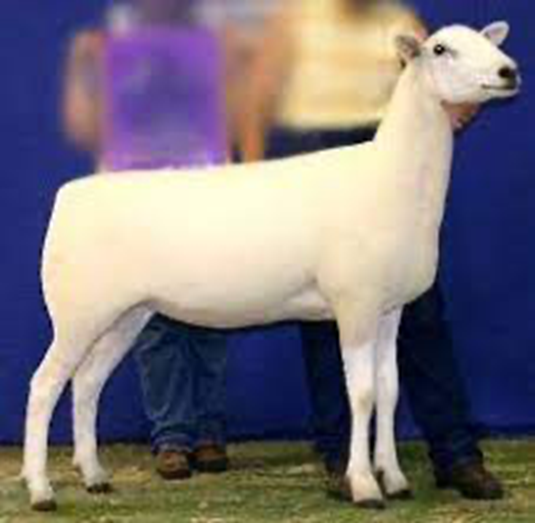
Montedale
Sheep Breed - Meat, hair breed, polled, Various colors, males have manes
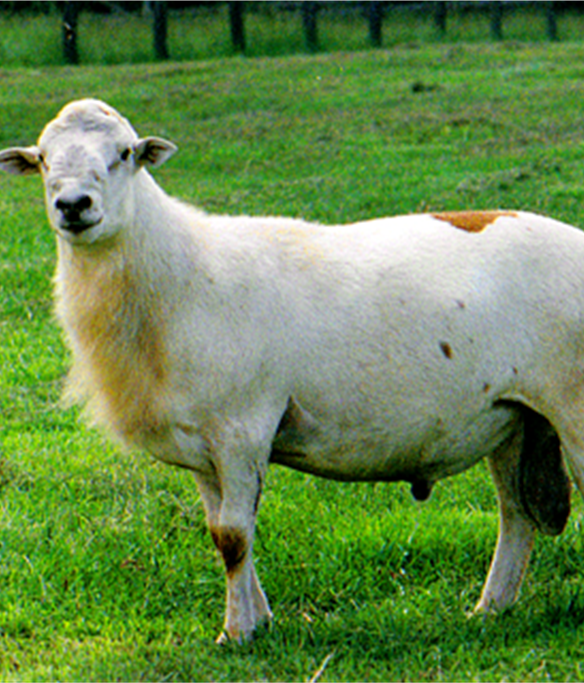
Katahdin
Sheep Breed - Meat, hair breed, black head, white body, can be all white, heaviest, growthiest
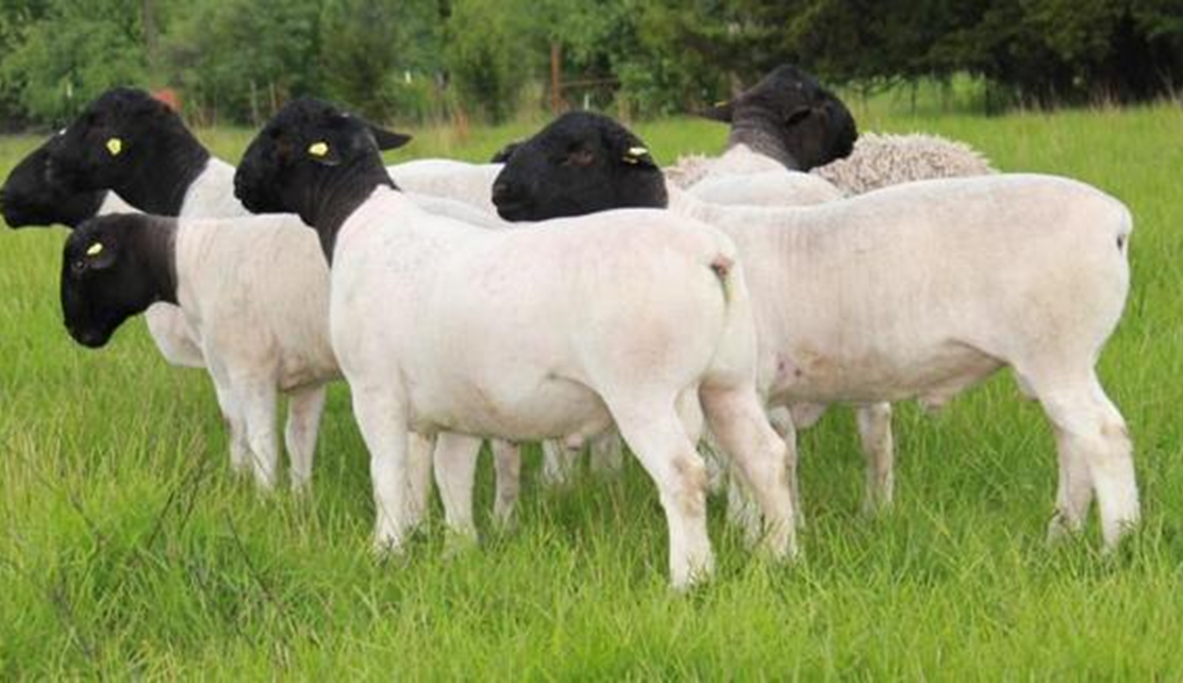
Dorper
Goat Breed - Meat, not much visual cues, black and white/tan, Crossbred for production
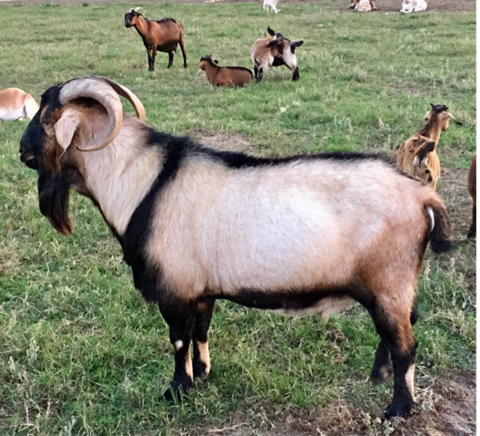
Spanish Goat
Goat breed - Meat, Red and white body, Roman nose, Color varies, spotted, full white with tiny spots of red, etc. Greatest influence on US industry over the past 10 years
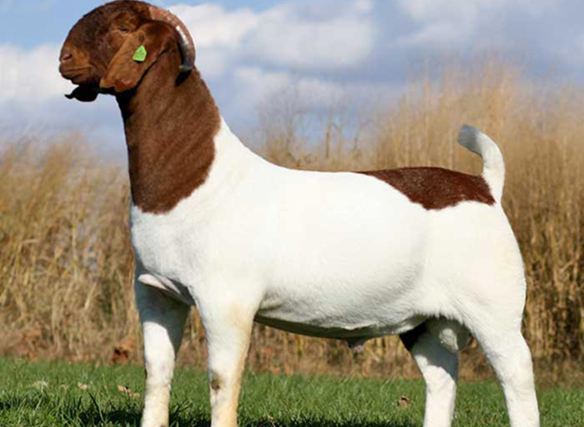
Boer
Goat Breeds - Meat, Variety of color patterns, used for large operations, hardy, fast growing and survivability. Good mothers, have natural parasite resistance, and are good in the humidity.
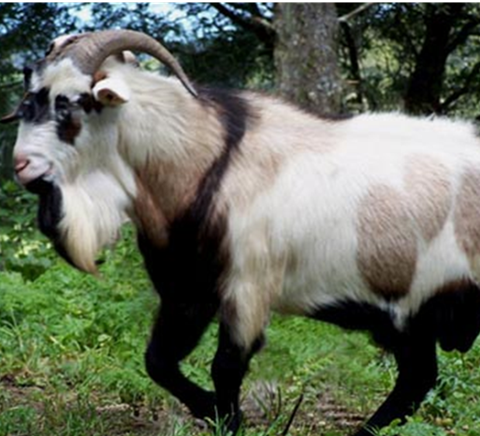
Kiko
Goat Breed - Meat, Cousin to Boer, White is most dominant color, Large, heat and drought resistant, looks like Boer goat but white
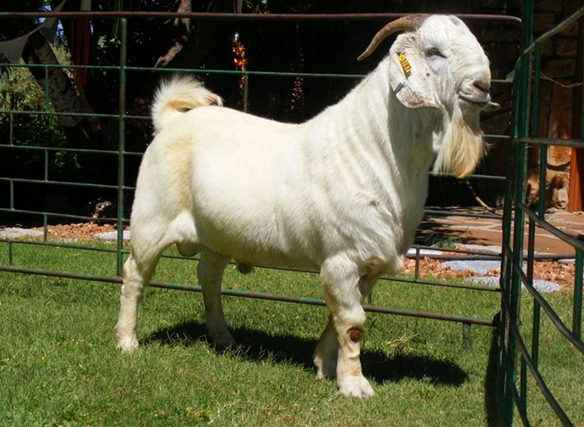
Savannah
Goat Breeds - Meat, Tennessee “Fainting” goats, medium size, typically black and white
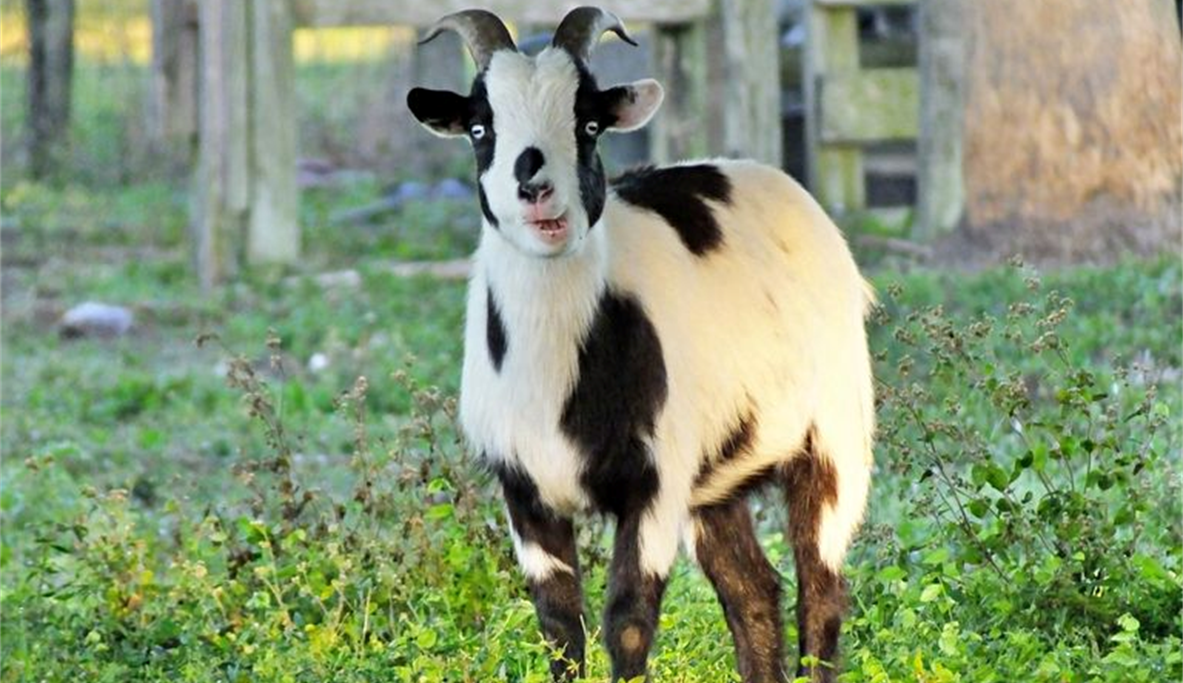
Myotonic
Boer x Tennessee fainting goat, medium sized, low maintenance, high feed efficiency, Good Mothers
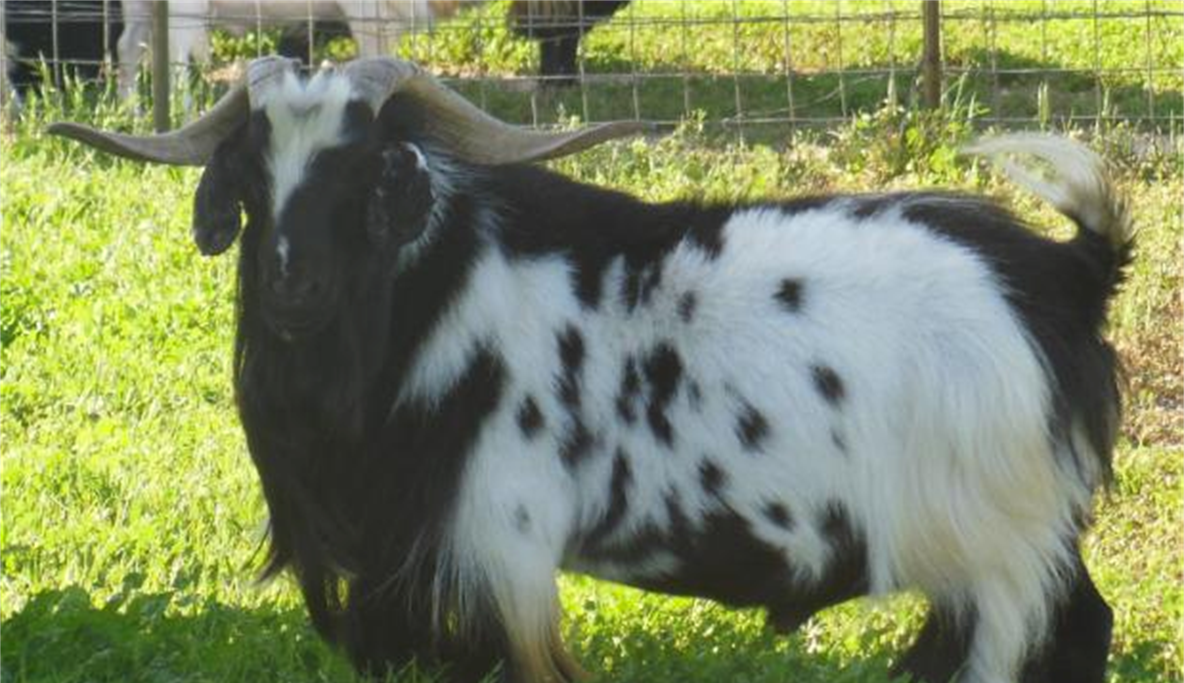
Texmaster